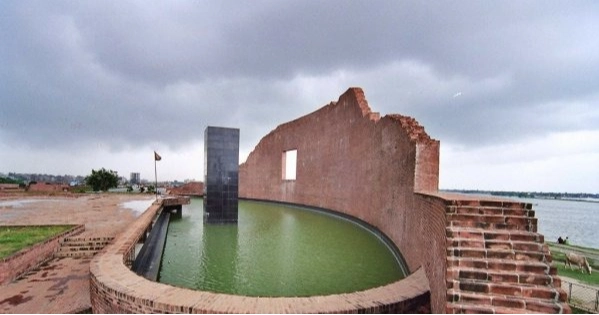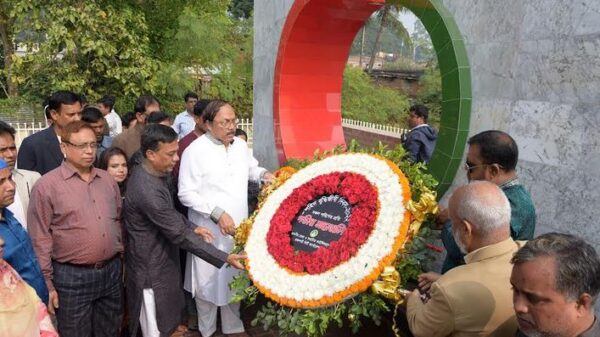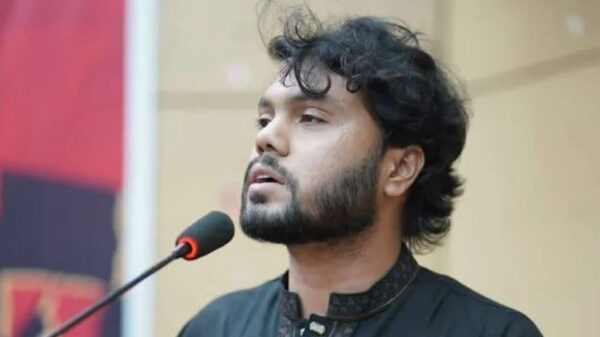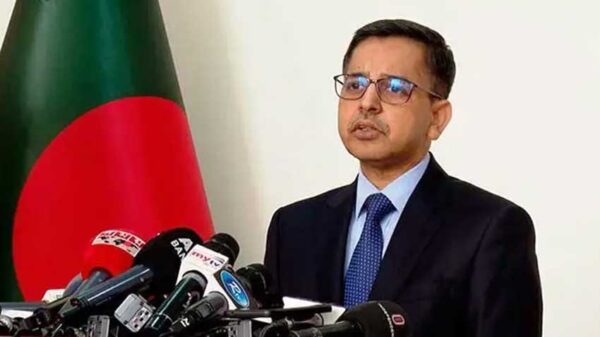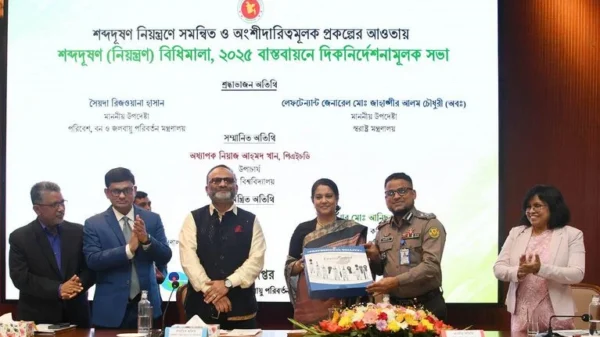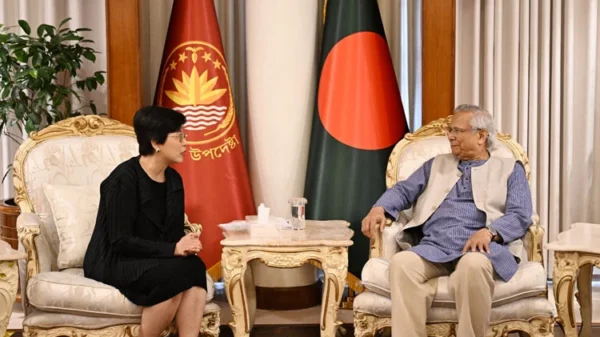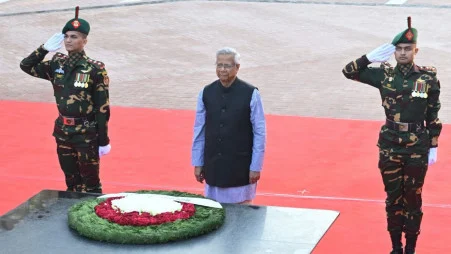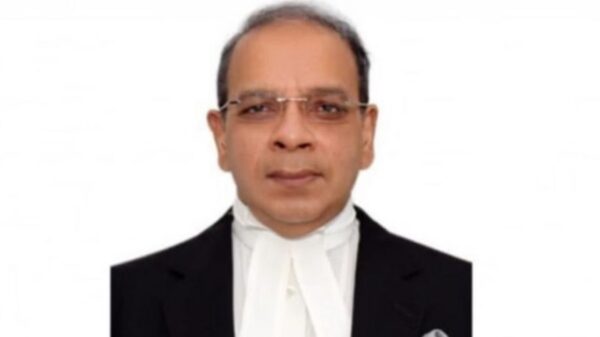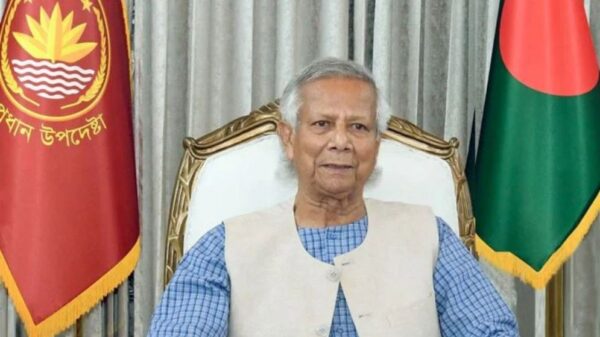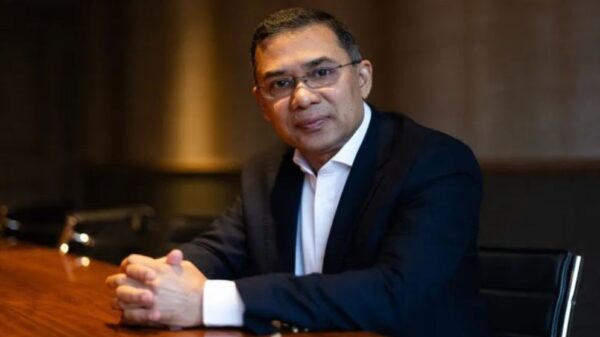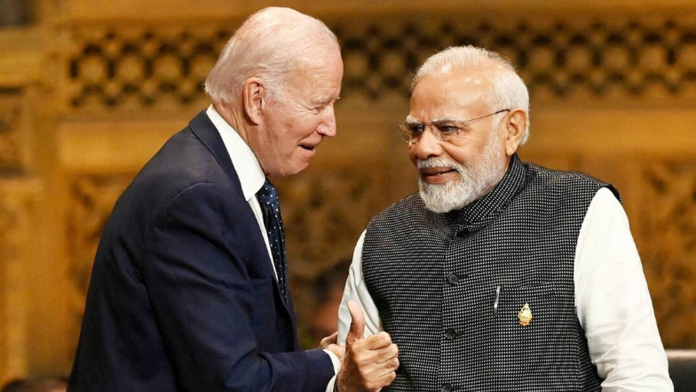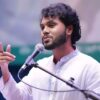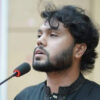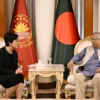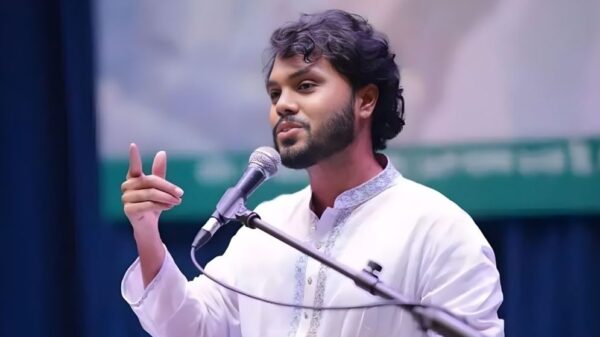WASHINGTON, May 15 (Net) — President Joe Biden has made it a mission for the U.S. to build friendships overseas — and the next few weeks will offer a vivid demonstration of the importance he’s placing on a relationship with Indian Prime Minister Narendra Modi.
The two are both scheduled to attend this week’s Group of Seven summit in Japan, a subsequent gather-ing of Pacific island leaders in Papua New Guinea, and a later meeting of Indo-Pacific leaders in Aus-tralia. Those travels will be followed by a June 22 state visit by Modi to Washington, a sign that both seem willing to deepen their bonds.
But like many geopolitical friendships, things are complicated between the world’s largest economy (the U.S.) and its most populous nation (India).
The personal outreach has a clear strategic calculus as both countries respond to China’s economic rise and increased global prominence. Yet while Biden champions democratic ideals and openly opposes Rus-sia for invading Ukraine, Modi has offered tepid criticism of Russia and opponents say he is eroding India’s democratic traditions.
That means the future of the alliance depends on a degree of patience.
“It’s a long game of steady forward movement in defense relations and some fairly rapid intensification of business ties — with the pace of both determined by the speed of movement on the Indian side,” said Kurt Tong, a former ambassador for the U.S. who is now managing partner of The Asia Group, a con-sultancy.
Biden last year publicly called India’s response to the war in Ukraine “shaky.” India abstained from vot-ing on U.N. resolutions condemning Russia and refused to join the global coalition against Russia. Modi had a relatively warm relationship with Biden’s predecessor, Donald Trump, and has made some efforts to forge a connection with Biden, who is known to focus on his Irish roots even when meeting with leaders of other nations.
When Modi came to Washington in September 2021, he brought with him documents about people with the last name “Biden” in India.
“Are we related?” Biden asked.
“Yes,” Modi joked.
While visiting Canada in March, Biden said he’s made it a strategic goal to improve relations with the rest of the world as he feels that America’s leverage against China and Russia is through its alliances.
“I have now met with 80% of the world leaders just since I’ve been president,” he said. “We’re the ones expanding the alliances. The opposition is not.”
Nilanjan Mukhopadhyay, a biographer of Modi, said the Indian leader’s connection with Biden is not personal — and has its limits. But it is necessary for the U.S. to keep India on its side as tensions with China have accelerated over Taiwan, the federal government’s ban on exporting advanced computer chips to China and human rights issues.
“To what extent can India be part of the U.S.-led alliance, that is for Modi to decide,” Mukhopadhyay said. “At some point or the other, the Americans would realize that Modi is not really going the whole hog as much as they would like India to be. But Modi will not get swayed by meeting Biden several times.”
Nirupama Rao, a retired diplomat who served as Indian ambassador to the U.S., said India has its rea-sons for not joining the condemnation of Moscow.
“The country wants Russia to maintain some distance from China, and it worries that isolating Moscow would just push it closer to Beijing,” she said. Relations between India and China are strained, with the two sides embroiled in an intense three-year standoff involving thousands of soldiers stationed along their disputed border in the eastern Ladakh region.
Rao said U.S. policymakers should not mistake India’s involvement in the so-called Quad — whose other members are the U.S., Japan and Australia — for an alliance. India is also in the Shanghai Cooperation Organization, a group dominated by Beijing and Moscow. It routinely attends trilateral meetings with China and Russia. It also continues to participate in the forum known as BRICS, which stands for Brazil, Russia, India, China and South Africa.
“So far, India has done an impressive job of maintaining its balancing act,” she said. “Whether it can continue to do so in the years ahead is an open question. Beijing has become increasingly belligerent, and it may eventually decide it will not deal with India if New Delhi strengthens its security ties to Washington.”
Both the U.S. and India have been emphasizing technology partnerships, including defense, clean energy and space. During Modi’s visit to the U.S. in June, the two leaders are also expected to discuss common challenges, including climate change and health security.
Russia is India’s largest supplier of military hardware. But India has been reducing its dependence on Russian arms by diversifying its purchases, buying from the U.S., France, Germany and other countries. The U.S. defense trade with India has risen from near zero in 2008 to over $20 billion in 2020.
The U.S. imported about $86 billion in goods from India last year, according to the Census Bureau. That figure has steadily increased, but it has room to grow as the U.S. still gets more goods from Taiwan and Vietnam than India. With more than 1.4 billion people, India is about 14 times the size of Taiwan and Vietnam combined.
There are some risks for Biden as he devotes more time to Modi, with advocates for human rights wary of the Indian leader’s track record. The freedom of the news media in India has been challenged after Modi became prime minister in 2014. Political rivals of Modi’s governing Hindu nationalist party have accused him of stifling dissent and introducing divisive policies that discriminate against Muslims and other minorities.
Modi’s Hindu nationalist party also suffered a political setback as India’s main opposition Congress party won control of the southern Karnataka state, according to a near complete vote count Saturday. The vic-tory could help unite the largely divided opposition in next year’s general election, in which Modi will seek a third consecutive term as prime minister.
Yet for Biden, developing a personal rapport out of public view might be critical for overcoming any differences with Modi.
“In this case, the investment is worth it,” said Lisa Curtis, director of the Indo-Pacific Security Program at the Center for a New American Security, a think tank. “There are a lot of things that President Biden can say privately to Prime Minister Modi that could end up having a favorable impact on U.S.-India relations.”


